God chose what is foolish in the world to shame the wise; what is weak to shame the strong; what is low and despised , things that are not, to reduce to nothing things that are. (1 Cor 1:27-28)
In the same The Book of the Constitutions, the Founder wrote: “What are the commonest instruments which God uses in order to carry out marvelous and most glorious deeds? St Paul teaches that God chose what is foolish in the world to shame the wise; God chose what is weak in the world to shame the strong; God chose what is low and despised in the world, things that are not, to reduce to nothing things that are” (1 Cor 1:27-28). Hence, to be coherent with this biblical logic, the Member should adopt a lifestyle that makes him somewhat uncomfortable since it renders him a sign of contradiction, a condition which is necessary for prophecy.
It is for this reason that this dimension created and still does cause uneasiness and challenge to the SDC Member. No prophet ever felt comfortable amidst the surrounding culture for prophetism, of its very nature, demands from the prophet that he stays on the fringes of society in order to look at it from a critical perspective. This idea that the prophet stays somehow on the threshold of society gives him the advantage of being able to mediate between its genuine values and its deceptions.
So as to live this prophetic dimension while loving the world, the Member must acquire his identity from the Gospel values and root his life in Christ of a gentle and humble heart. Thus the Member does not model his behaviour on the contemporary world, but lets the renewing of his mind transform him, so that he may discern what is the will of God, what is good and acceptable and mature (Rm 12:2).
The Member realizes that the world needs to see him live his real calling. In spite of everything, he ought to feel joy that he is a provoking question to the world for he does distinguish clearly between what is eternal and what is just passing fashion. Convinced of the maxim that “what is not eternal is useless”, the Member dresses modestly, utilizes his money for the apostolate, the poor and for just causes; he is sober in the ways and means he uses for his personal recreation, is not frugal with his time; he is ready to give in rather than resist like solid rock against the onslaughts of arrogance; he forgives every time he finds that he is in the right; he guards himself from curiosity and useless talk, and keeps God alone as his witness in everything. In the spirit of John the Baptist, the Members must go on witnessing to perennial values even if they sound like “a voice in the desert”. Their lifestyle must always proclaim the scandal and the foolishness of the Cross.
As lay persons, the Members cannot forsake that which is strictly necessary for their living and for rightful leisure, two aspects of life which are relative with different individuals. But forces of consumerism can artificially create this need, and it can become so pressing to be taken as an absolute criterion. All this presents a serious challenge to the stance of poverty and frugal living that the Member is to practice.
In order to live this life form, the Member needs Spiritual Direction. Apart from being requested by the Founder since the beginning of the Society, Spiritual Direction is primarily linked to the growth of the longing for God in one’s life, to the examen of motivations in one’s heart, and, in the words of the Founder, to the combat against deceptions so the Member becomes more “the new being” according to God’s heart.


